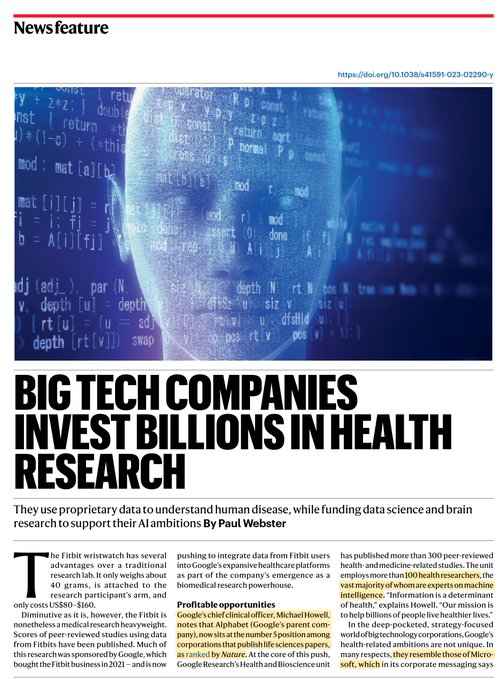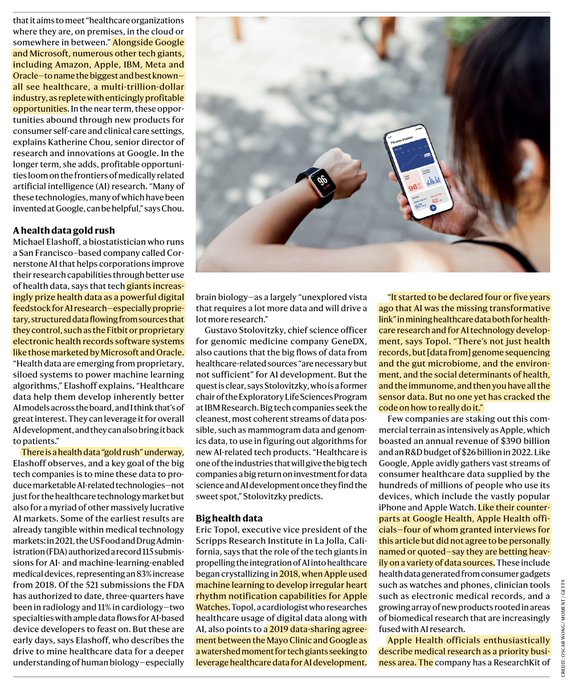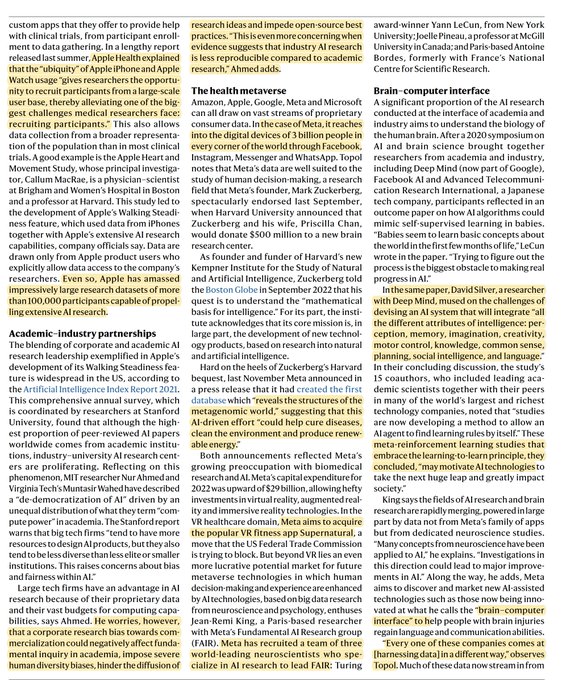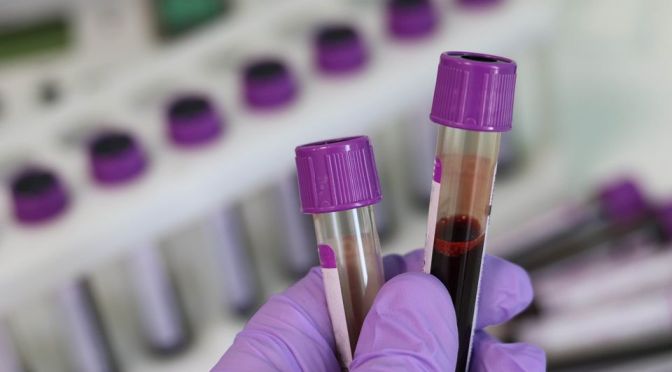Category Archives: Medicine
Healthcare: The Digital Medicine Revolution
Scripps Research (April 11, 2023) – From smartwatches and fitness bands to glucose monitors and in-home ultrasounds, the proliferation of digital devices is igniting a revolution in healthcare and medical research.
Patients can now collect thousands of data points about themselves and share that information with their healthcare providers. At the Scripps Research Translational Institute, researchers are taking advantage of new technology to study disease in novel ways.
Their projects include a platform for early detection of disease outbreaks, a sleep quality study, and even a way to predict and individual’s risk of certain disease based on their genetics. In this video, hear directly from the team about this exciting new frontier.
BIPOLAR DISORDER: HOW IT IS DIAGNOSED & MANAGED
Cleveland Clinic (April 6, 2023) – About 5.7 million adults in the U.S. have bipolar disorder. The lifelong mental health condition, which includes four different types, is known for the maniac and depressive episodes someone experiences.
Chapters: 0:00 Intro 0:26 What is bipolar disorder? 0:50 What does a manic episode feel like? 1:18 What does a depressive episode feel like? 2:00 How to manage bipolar disorder
What is bipolar disorder?
Bipolar disorder (formerly known as manic-depressive illness or manic depression) is a lifelong mood disorder and mental health condition that causes intense shifts in mood, energy levels, thinking patterns and behavior. These shifts can last for hours, days, weeks or months and interrupt your ability to carry out day-to-day tasks.
There are a few types of bipolar disorder, which involve experiencing significant fluctuations in mood referred to as hypomanic/manic and depressive episodes. However, people with bipolar disorder aren’t always in a hypomanic/manic or depressive state. They also experience periods of normal mood, known as euthymia.
READ MORE at Cleveland Clinic
Public Health: The Rise Of The Deadly Fungi (WSJ)
Daniela Hernandez | WSJ (March 24, 2023): HBO’s The Last of Us previews what a fungal apocalypse might look like. While scientists aren’t worried about the Cordyceps fungus taking us out IRL, deaths due to severe fungal infections are going up and raising alerts from public-health agencies.
Video timeline: 0:00 Fungal infections kill an average of 1.6 million people per year 0:30 How climate change has aided in fungi production 2:11 Infectious fungi are more dangerous for compromised immune systems 2:42 Why there are limited treatment options for fungal infections 3:29 How worried should you be about fungi?
I explain three big reasons why the next big health threat might come from a fungus.
Candida auris is an emerging fungus that presents a serious global health threat. CDC is concerned about C. auris for three main reasons:
- It is often multidrug-resistant, meaning that it is resistant to multiple antifungal drugs commonly used to treat Candida infections. Some strains are resistant to all three available classes of antifungals.
- It is difficult to identify with standard laboratory methods, and it can be misidentified in labs without specific technology. Misidentification may lead to inappropriate management.
- It has caused outbreaks in healthcare settings. For this reason, it is important to quickly identify C. auris in a hospitalized patient so that healthcare facilities can take special precautions to stop its spread.
Immunity: How T Cells And B Cells Fight Infections
nature video (March 15, 2023) – Lymphocytes are immune cells that play vital roles in fighting infections. The most well-known lymphocytes are the T cells and B cells of the adaptive immune system. In the 1950s and 1960s, scientists performed experiments to follow lymphocytes on their journey around the body, which helped us to work out where they go and what they do.
This work laid the foundation for everything we know about T cells today, including how they become activated to fight infections and how they form memory populations that provide long-lasting immunity.
Medicine: AI Verifies ‘Brain Age’ To Detect Alzheimer’s
National Science Foundation (March 13, 2023) – Harnessing the power of AI, researchers calculate our brain’s age leading to earlier detection of Alzheimer’s and other cognitive diseases.
Researchers at USC have developed a new artificial intelligence model that more accurately captures brain age. This study could result in earlier detection of Alzheimer’s and other cognitive diseases and provide important information about how quickly our brains age.
Heart Health: Cardiology Magazine – March 2023
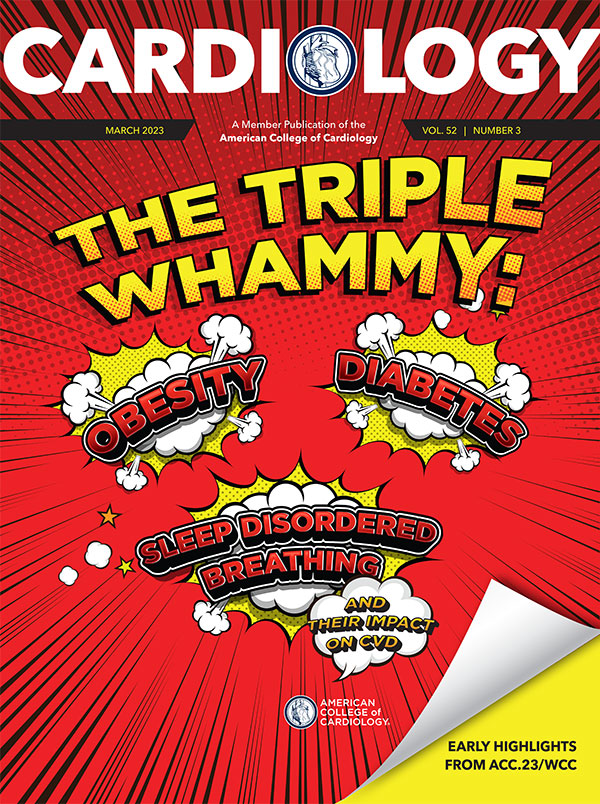

CARDIOLOGY MAGAZINE – MARCH 2023 ISSUE:
The Triple Whammy: Obesity, Diabetes and Sleep-Disordered Breathing and Their Impact on CVD

“It’s extremely important we as health care professionals address diabetes, poor sleep and poor sleep hygiene, and obesity as they are modifiable risk factors for cardiovascular disease,” says Nishant P. Shah, MD, FACC, a preventive cardiologist at Duke Heart Center, Duke University School of Medicine, in Durham, NC.
Obesity, diabetes and sleep-disordered breathing (SDB) are considered to be extant and growing public health crises. A wealth of information links these conditions to each other and to increased morbidity, reduced quality of life and death. While managing these conditions that often occur together may be challenging for patients and clinicians, successfully addressing them represents a real opportunity to reduce cardiovascular disease and prevent cardiovascular events.
Research: New Scientist Magazine- February 4, 2023

New Scientist – February 4, 2023 issue:
How to tell if your immune system is weak or strong
New blood tests can reveal whether your immune system is fighting fit by looking at the balance of different immune cells, but there may be a simpler way of gauging your immune health
Inside the complex and extremely violent world of warring mongooses
Banded mongooses have long been used as a model of animal cooperation. Now, researchers in Uganda are starting to get to grips with the harsh realities of their long-running and bloody battles
How genetically engineered immune cells are beating some cancers
In some cases, it is now possible to genetically engineer the immune system to banish cancers like T-cell leukaemia that were previously unresponsive to treatments
Medicine: ‘Single Drop’ Blood Testing Advances
“Even more importantly, we’ve shown you can collect the blood drop at home and mail it into the lab,” said Michael Snyder, PhD, director of the Center for Genomics and Personalized Medicine and senior author on the research, which was published in Nature Biomedical Engineering on Jan. 19.

Stanford Medicine (January 19, 2023) – Researchers at Stanford Medicine have shown they can measure thousands of molecules — some of which are signals of health — from a single drop of blood.
Unlike finger-prick testing for diabetes, which measures a single type of molecule (glucose), multi-omics microsampling gives data about thousands of different molecules at once.

The new approach combines a microsampling device — a tool used to self-administer a finger prick — with “multi-omics” technologies, which simultaneously analyze a vast array of proteins, fats, by-products of metabolism and inflammatory markers.
Epigenetics & Aging: DNA Breakage & Repair Effects
Harvard Medical School – A 13-year international study in mice demonstrates that loss of epigenetic information, which influences how DNA is organized and regulated, can drive aging independently of changes to the genetic code itself.
It also shows that restoring the integrity of the epigenome reverses age-related symptoms.
Learn more at https://hms.harvard.edu/news/loss-epi…


